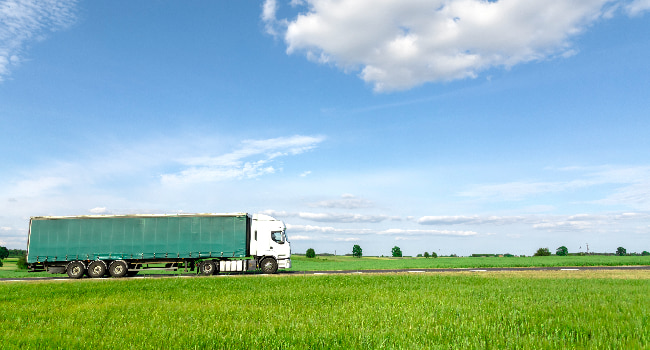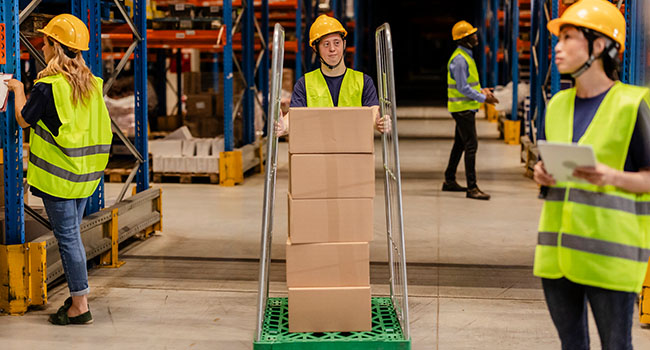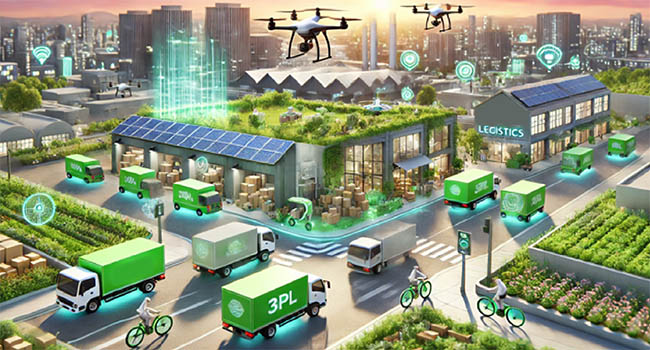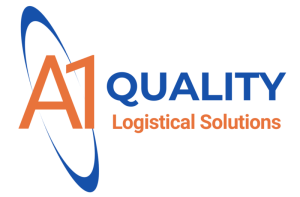A1 Quality Logistical Solutions

- By Haley
- October 22, 2024
Table of Contents
Key Highlights
- The logistics industry is experiencing a significant shift towards sustainability, driven by environmental concerns and growing customer demand.
- 3PL providers are playing a crucial role in this transformation, adopting green practices to minimize their environmental impact and enhance efficiency.
- Key green practices include optimizing transportation routes, utilizing eco-friendly packaging, and investing in clean energy vehicles.
- Sustainable logistics offer numerous benefits including cost savings, enhanced brand image, and a competitive advantage for businesses.
- Collaborative efforts between 3PL providers, environmental organizations, and supporting government policies are instrumental in driving sustainable practices within this evolving industry.
Introduction
Sustainability has become a new focus in the supply chain sphere. Companies want to improve logistics services and make the customer experience better. This commitment to eco-friendly practices is changing the way we handle logistics. It encourages businesses to choose greener solutions in their supply chains.
Understanding the Shift Towards Green Logistics
The logistics industry is known for using a lot of energy and affecting the environment. However, it is now focusing more on being sustainable. This change is happening for a few important reasons.
More people are becoming aware of environmental issues. They are also worried about climate change, which is pushing businesses to find ways to lessen their impact on the planet. At the same time, many customers are asking for sustainable products and services. This demand is making companies focus on eco-friendly practices in their operations and supply chains.

The Importance of Sustainability in the Logistics Industry
Sustainability is not just a catchphrase. It is a key part of logistics businesses that want to succeed over time. The worries about the environment in this industry are serious. These concerns range from carbon emissions and air pollution to waste left from packaging and noise.
Solving these environmental issues is not just the right thing to do; it is also smart for business. By adopting sustainable supply chain operations, logistics companies can improve their efficiency. They can also lower their costs and boost their brand image.
Using sustainable practices like planning better routes and using fuel-efficient vehicles can help cut down on fuel use and emissions. Additionally, using reusable packaging and handling waste better can lower costs and lessen a company’s impact on the environment.
How Environmental Concerns are Reshaping Supply Chains
Environmental issues are causing a big change in how supply chain management works. Companies are now trying to include green practices in all aspects of their work. This ranges from procuring supplies to making products, storing items, and delivering goods. They are looking for new ways to reduce their impact on the environment.
One big part of this change is using sustainable sourcing. More companies are choosing suppliers who care about eco-friendly practices. This makes sure that materials are sourced responsibly. Also, businesses are working on improving production processes. They want to cut down on waste, save energy, and lower emissions.
Using green practices in supply chains goes beyond just being socially responsible. It is also a smart choice for cost savings and increased efficiency. By improving transport routes, finding better packaging, and decreasing waste, companies can cut their costs significantly while showing their commitment to the environment.
The Role of 3PL Providers in Sustainable Logistics
Adapting to Green Practices: A Strategic Move for 3PLs
As demand for eco-friendly solutions grows, 3PL providers see that going green is good for the planet and makes sense for their overall business strategy. 3PL companies that think ahead are using this trend to surpass their competitors.
By putting sustainability at the heart of their services, these providers attract customers who care about the environment. This improves their place in the market and, simultaneously, grows their business. Using green practices can make their operations more efficient and cut costs, benefiting both the provider and their clients.

Case Studies: 3PL Providers Leading in Sustainability
There has been an uptick of 3PL providers around the world are becoming leaders in sustainable logistics. They are showing real results by sticking to eco-friendly methods and are setting a good example for others in the industry.
In one particular case, a global 3PL provider that invested a lot in electric vehicles and trucks that use fuel alternatives. This reduced their carbon footprint a lot and showed commitment to sustainable ways of transportation.
Another good example is a 3PL provider known for its green warehousing solutions. This company installed energy-saving lights and smart climate control systems in its buildings. This allowed them to use less energy and lower their costs. These efforts highlight the benefits of sustainable practices and motivate other 3PL providers to do the same.
Key Green Practices Adopted by 3PL Companies
Eco-Friendly Packaging Solutions
Optimization of Transportation Routes
Transportation plays a major role in using fuel and creating emissions. 3PL companies see the need for greener transportation and are working hard to make their routes better to help the environment.

They use advanced transportation management systems. These systems use smart algorithms to find the best route while analyzing factors like distance, traffic, and delivery times. By picking better routes, 3PL providers can cut down on fuel use and the emissions that come with it. This helps create a more sustainable transportation network.
Investment in Clean Energy Vehicles
Many 3PL companies see the impact of traditional fuel-powered vehicles on the environment. They are now investing in clean energy vehicles. This change aims to reduce their carbon footprint and promote greener transportation.
These cleaner options include a variety of vehicles. This range covers electric trucks and vans as well as those powered by alternative fuels like biodiesel and hydrogen. Electric vehicles are especially important. They have zero emissions, which helps lower greenhouse gases and improve air quality.
Investing in clean energy vehicles shows a company’s dedication to being eco-friendly. It also has practical benefits. For example, electric vehicles cost less to operate and maintain than traditional vehicles. This is because they have simpler designs and fewer moving parts.
Benefits of Green Practices in Logistics
The use of green practices in logistics is very valuable for 3PL providers and their clients. It helps the environment and also leads to better efficiency, cost savings, and a stronger brand image.
When logistics companies put sustainability into action, they show that they care about the environment. At the same time, they enjoy real business benefits. Today, shifting to green practices is not just an option; it is a key part of being successful in a market that cares about the environment.

Environmental Benefits of Sustainable Logistics
The environmental benefits of sustainable logistics are large and measurable. By working to lessen their impact on the environment, logistics companies can help create a healthier planet and a sustainable future.
A key benefit is the drop in carbon emissions. When logistics companies optimize transportation routes and use fuel-efficient vehicles, they can greatly reduce their greenhouse gas emissions. This helps fight climate change and makes the air cleaner. Also, by focusing on sustainable practices like cutting waste, recycling, and using eco-friendly packaging, they save resources and reduce pollution for future generations.
Using green logistics also supports bigger sustainability goals. It builds a better industry that is more responsible and aware of the environment. These efforts show how good sustainable practices are for the planet and how they can promote a better future.
Economic Advantages for 3PL Providers and Their Clients
The benefits of green logistics for the environment are great, but the economic benefits are just as important. By using sustainable practices, 3PL providers can save money, work more efficiently, and stand out against competitors.
Fuel consumption is a main part of cost control. By planning better transportation routes and using fuel-efficient vehicles or alternative fuels, 3PLs can cut their fuel costs. Plus, being more sustainable can mean getting better rates from transport providers and insurance companies. Insurers may charge lower premiums to businesses that show they take fewer environmental risks.
In the end, these economic benefits can help clients by providing them with lower prices and effective logistics solutions. This brings a win-win situation where sustainability and profit can work together in the logistics industry.

Enhancing Brand Image and Customer Loyalty
In today’s world, customers want to support businesses that share their values. For third-party logistics (3PL) providers and their clients, going green can help improve their brand image and grow customer trust and loyalty.
As people become more aware of how their purchases affect the planet, they look for products and services from companies known for being environmentally friendly. It’s important for these businesses to share their efforts openly and explain their commitment to sustainability.
By showing they take care of the environment, companies can stand out from the competition. This can help them attract customers who care about eco-friendliness, improve their brand reputation, and build customer loyalty.
Collaborative Efforts Towards Green Logistics
Creating a sustainable logistics system requires everyone to work together. This includes 3PL providers, businesses, government agencies, and environmental groups. When we share knowledge and good ideas, it helps everyone use green practices faster.
Government support and policies that encourage sustainable logistics can help businesses choose green solutions. Also, teaming up with environmental organizations can offer useful knowledge and help put eco-friendly practices into action.

Partnerships Between 3PL Providers and Environmental Organizations
Strategic partnerships between 3PL providers and environmental groups can greatly help in promoting sustainable practices in logistics. These partnerships use the skills and resources of both sides to support eco-friendly projects and positively affect the industry.
Environmental groups have a lot of knowledge about environmental problems, best practices for sustainability, and new solutions. By sharing this knowledge with 3PL providers, they can spot areas to improve, put in place effective green methods, and track their impact on the environment. These partnerships also improve a company’s profile in social responsibility.
When 3PL providers work with trusted environmental groups, they show their commitment to sustainability. This message reaches stakeholders like customers, investors, and employees. This teamwork proves their dedication to protecting the environment, boosts their reputation, and helps attract similar partners and customers.
The Role of Technology in Enhancing Green Logistics
Technology is changing the logistics industry and is important for supporting green practices. New technology helps companies improve their work. This includes route planning, grouping shipments, managing warehouses, and delivering goods. As a result, this makes things more efficient and less harmful to the environment.
Supply chain visibility is key for sustainable practices. With real-time data about goods movement, companies can spot problems, improve routes, and use less fuel and create fewer emissions. Machine learning and predictive analytics make supply chain management easier to manage and more accurate.
These tools can look at large amounts of data in an efficient manner. They help predict what will be needed, manage inventory levels, and avoid overstocking and waste. Also, using telematics and fleet management in transport helps 3PLs track how their vehicles are doing. This encourages drivers to use fuel wisely and keeps maintenance on track, which helps reduce their impact on the environment.
The Future of Sustainable Logistics and 3PLs
The future of sustainable logistics looks bright. There are new ideas and technology improvements, in addition to more businesses committed to being green. As people focus more about the environment and seek sustainable products and services, using eco-friendly practices will become essential for success in the logistics industry.
Third-party logistics (3PL) providers can help lead this change. They can encourage new ideas and promote sustainability across their networks and the entire industry. By creating innovative solutions, working together with others, and supporting eco-friendly practices, 3PLs can help build a greener and more efficient future for logistics.

Emerging Trends in Green Logistics
The area of green logistics is always changing. It’s driven by new ideas and a common goal of being environmentally friendly. New trends show a future where taking care of the environment goes hand in hand with working efficiently.
One key trend is the growing use of alternative fuels and electric vehicles in transport. Electric trucks and vans that run on renewable energy are becoming popular instead of traditional diesel vehicles. Also, the creation of sustainable aviation fuels and the testing of hydrogen-powered planes suggest we may have more eco-friendly options for air shipping in the future.
In warehousing, automated storage and retrieval systems (AS/RS) are helping to save energy and use space better. These high-tech systems need less human help, which cuts down on the energy used for lighting and climate control in big warehouses. The use of artificial intelligence (AI) and predictive analytics is also changing logistics operations for the better.
Predictions for the Future Role of 3PLs in Sustainability
Industry reports say that 3PLs will be more important for sustainability efforts in the future. As businesses choose to outsource their logistics operations, 3PL providers will have a greater impact on promoting eco-friendly practices.
3PLs can help companies use sustainable technologies and ideas within their networks. They can invest in and put into action things like electric vehicle fleets, green warehouses, and smart route planning software. This will help lower the environmental impact of logistics operations.
To stay competitive and meet the needs of eco-aware customers, 3PLs must include good sustainability practices in their main business plans and strategies.
How 3PL Providers Can Stay Ahead in Green Practices
In the fast-changing world of logistics, being sustainable is very important. Third-party logistics (3PL) providers need to change and improve all the time to stay ahead in green practices. By welcoming new technology, creating a culture of sustainability, and working with others, 3PLs can boost their market position and attract customers who care about the environment.
Improving all the time should be a main part of a 3PL’s plan for sustainability. It is important to regularly check how they are doing environmentally. They should find ways to improve, and set clear goals for reducing emissions, cutting waste, and saving resources. This is key for success in the long run.
Being open is very important too. When 3PLs share their sustainability efforts clearly with clients, investors, and employees, it builds trust. It also shows that they truly care about being responsible toward the environment. By leading in green practices, 3PL providers can strengthen their role as leaders in sustainable logistics.
Implementing Green Practices in Your Logistics Strategy
Integrating green practices into a logistics plan doesn’t have to be hard. By taking it step by step, setting practical goals, and working with eco-friendly 3PL providers, businesses can slowly move towards greener operations. They can also enjoy the benefits that come with it.
Sustainability is a journey. It needs constant improvement and flexibility. When logistics companies commit to reducing their impact on the environment, they can help make the planet healthier and build a more sustainable future for everyone.

Steps for 3PL Providers to Become More Sustainable
For 3PL providers focused on sustainability, it is important to turn their commitment into real actions. They need to create a clear plan that details specific sustainable goals and how to achieve them.
Start by careful checking of the company’s current impact on the environment in all work areas. This includes transportation, warehouses, packaging, and waste management. This check will help find areas that need improvement and decide which sustainable projects to prioritize. Having clear, measurable goals with set timelines will keep the company accountable. These goals might involve cutting carbon emissions by a certain amount, reducing waste, or using more renewable energy.
Making these changes will need investment in green technologies and better infrastructure. This could be electric vehicles, energy-saving warehouse systems, or eco-friendly packaging. Working with tech providers and using innovative solutions can speed up the move to greener operations.
How Businesses Can Choose the Right Green 3PL Partner
When choosing a 3PL partner, businesses that care about sustainability should look for those that share their values. It’s important to check if these partners are truly committed to taking care of the environment.
Start by finding 3PL providers with clear goals regarding sustainability. They should have a policy that outlines their efforts. It’s crucial to be open and honest, so find providers that share their environmental results and want to talk about their practices.
Review their track record and experience. Think about things like their use of green technology, such as electric cars and energy-saving buildings. Also, check their packaging choices and how they transport goods. Don’t be afraid to ask for case studies or testimonials. This way, you can learn about their commitment and ability to keep their sustainability promises.

Monitoring and Reporting Sustainability in Logistics
Monitoring and reporting on sustainability performance is key. It helps track progress, find areas to improve, and show accountability to stakeholders. Clear performance metrics that match the company’s sustainability goals allow for steady measuring and checking of important environmental indicators.
It’s important to track factors like carbon emissions from transportation, energy use in warehouses, waste creation, and recycling rates. These metrics offer useful information about the company’s impact on the environment. Checking these metrics often helps spot trends, find inefficiencies, and measure how well sustainability efforts are working. Sharing this information openly in sustainability reports shows the company’s dedication to protecting the environment.
Sustainability reports should not just present data; they should also give context, celebrate achievements, and describe future goals and plans.
Case Study: Successful Green Initiatives by a 3PL Provider
To show how green initiatives can work in the logistics industry, let’s look at an interesting case study. A top 3PL provider wanted to be more sustainable and saw that their customers wanted this too. They started a complete change to include eco-friendly practices in everything they do.
This case study explores the different actions they took, the effects on their business, and the important lessons they learned. It offers ideas and practical tips for other 3PL providers who want to take similar steps toward better sustainability.

Overview of the Initiative
This case study looks at a global 3PL provider that started a big project to change its operations and reduce its impact on the environment. The company understood that being sustainable is now necessary, not just a way to stand out. They began a journey to bring eco-friendly practices into all parts of their business.
The project included a full review of what they were doing, finding ways to improve, and setting clear goals for being sustainable. They focused on areas like improving transportation routes, switching to electric vehicles, using green warehousing, and offering sustainable packaging to their clients.
To make sure their sustainability goals matched their business goals, the company created a special team. This team is in charge of leading the initiatives, keeping track of progress, and connecting with others involved. They help build a culture of sustainability in the company and get support from employees at every level.
Impact on Sustainability and Business Operations
The 3PL provider’s green efforts led to big improvements for the planet and their business. They saved fuel and cut down on carbon emissions by planning better routes, using fuel-saving driving methods, and adding electric vehicles to their fleet.
In their warehouses, they used energy-saving lights, smart temperature controls, and motion sensors. This change helped them lower energy use and costs. They also switched to recyclable and biodegradable packaging, made their packaging sizes more efficient, and encouraged reusable options. These actions helped reduce waste and make their supply chain more sustainable.
The company found that being eco-friendly not only helped the environment, but also improved their brand image. They attracted more customers who care about the planet and created pride in their employees.

Lessons Learned and Best Practices
The journey of the 3PL provider towards being more sustainable taught them important lessons. One major point was that sustainability is not a one-time task. It needs constant improvement and changes. The company realized that having ambitious but realistic goals is important. They also needed to check their progress often and stay open to new technologies and changing market needs to succeed.
They learned that working with clients and suppliers was key. This teamwork helped to promote sustainable practices in the supply chain, making their positive effects even stronger. Good communication was also very important for their progress. The company found that openly sharing their sustainability goals, projects, and achievements with clients, investors, and employees built trust. It also tightened their relationships and showed their commitment to caring for the environment.
Through this experience, the 3PL provider got useful insights into adding sustainability to their core business. In the end, this made their logistics operation more responsible, efficient, and strong.
Conclusion
In conclusion, moving towards sustainable logistics is very important for the environment. It also brings economic benefits and improves brand reputation. 3PL providers are key in using green practices. This includes eco-friendly packaging, better transportation routes, and investing in clean energy vehicles. Supporting sustainability helps the environment and builds customer loyalty. It also sets a good example for the logistics industry. As we aim for a greener future, teamwork between 3PL providers, environmental groups, and new technology will greatly shape sustainable logistics. Sustainability is not just a trend; it is necessary for the long-term success of the logistics industry.
Frequently Asked Questions
What Are Some Examples of Sustainable Logistics Initiatives?
Sustainable logistics initiatives involve several important steps. These include:
- Moving to renewable energy sources in warehouses and transport.
- Setting up strong waste reduction and recycling programs.
- Improving delivery routes to save fuel.
- Using eco-friendly materials for packaging.
- Working with partners who care about the environment.
How Do Green Practices Benefit the Environment and Businesses?
Green practices help the environment. They reduce pollution and save resources. They also lower emissions. For businesses, these practices increase brand value. They help companies stand out in the market. They can save money through efficient operations. Plus, they make sure companies follow the rules.

Haley serves as the Marketing Manager for A1 Quality Logistical Solutions. She joined A1QLS in 2023 with her prior experience gained with GXO and XPO Logistics.
